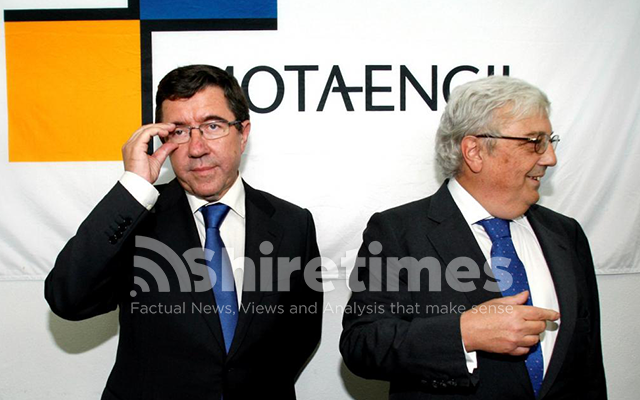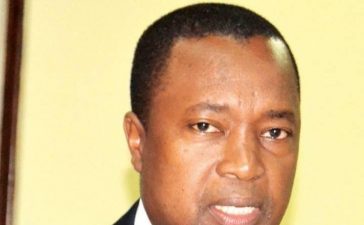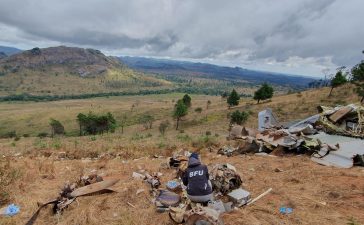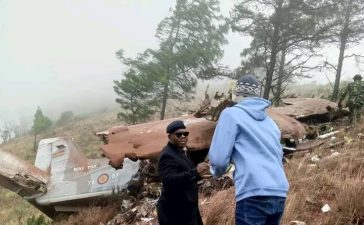Introduction
In 2018, the government of Malawi floated an invitation for bids from competent engineering and construction firms to design, rehabilitate and upgrade the Marka to Bangula railway section. After a purported bid evaluation process, Mota Engil Engenharia (Mota Engil), a Portugal conglomerate, was awarded the tender to rehabilitate the railway section. While the award of this tender would normally have signaled the end of the bidding and its related process, it might very well be the beginning of a protracted legal battle and the subject of criminal investigations. It has emerged that there were heavy irregularities in the awarding of the contract.
A group of bidders who were short-changed in the evaluation process, wrote the Anti-Corruption Bureau (ACB) alleging irregularities in the award of the tender to Mota Engil. On 2nd September 2021, the ACB confirmed receiving their official complaint. So damning were the allegations that upon finding merit in the complaint, the ACB issued a restriction notice to the ministry of Transport and Public Works (MoTPW) on 3rd September 2021, restricting it from proceeding with the award of the contract until the ACB would have concluded the investigations or lifted the restriction order. However, the complaints on the award of the contract kept on coming. By Saturday 4th September 2021, another group of international bidders also submitted their complaints. Based on how the complaints have been handled this far, ACB must be commended for its swift action to arrest a possible injustice. This is how the trust will be restored in the institution after decades of abuse eroded public trust.
While the ACB is yet to conduct its own investigations, our team has been closely following developments over the issue, and should a need arise, we shall share with the ACB all that we have in our possession to aid its investigations.
Abrogation of duty
Our investigations established severe irregularities in the award of the contract to Mota Engil. The whole process smacks of a high-level and well-coordinated corruption scheme reminiscent of the state capture kind witnessed in South Africa. Public officials not only looked the other way but were proactive in collaborating with Mota Engil in its nefarious activities.
Ministry officials acted with questionable conduct and motives. The negligent conduct, utter disregard of operating procedures, and relegation of morals on display in this enterprise are just too hard to comprehend. It was not a matter of a few individuals randomly receiving kickbacks to offer an advantage to a competitor. It was about top government officials abdicating their responsibility to consciously indulge in illegality and at large, institutionalizing a culture of neglect and corruption. Those who were tasked with defending the interests of the public chose to do the opposite. For all intents and purposes, the MoTPW was an extension of Mota Engil itself.
It is because of this abrogation of duty by MoTPW officials that Mota Engil was able to obtain a dubious “No Objection” letter for the award of the contract. Initially, it was claimed that a No Objection letter had been issued by the PPDA, but upon further instructions, it was established that what was purported to be the No Objection letter, was never procedurally issued by the ministry. One very junior official, by the name of Nancy Wana, had bypassed so many official processes to issue the letter. After a whistleblower name Mulotwa Mulotwa exposed this fraud, the officials sacrificed the junior official by firing her hoping that was enough cost to be paid and get away with the ‘murder’. This was just one, among the litany of irregularities registered over the award of this contract.
It must be kept in mind that since there was no “No Objection” letter, the MoTPW was not under obligation to begin the process of finalizing the award of the contract to Mota Engil. However, the MoTPW proceeded as if such a letter had been issued. In reference letter ADM/2/1, the MoTPW wrote the Government Contacting Unit (GCU) that it had recommended the award of the contract to Mota Engil Engenharia and further submitted the contractual agreement for vetting to it. In a letter Ref No: OPC/GCU/MoTPW/01, the GCU acknowledged receipt of the submission and wrote MoTPW that it had noted some critical issues that need clarification before approval could be granted for the ministry to proceed with the award and signing of the contract. The list of the comments, observations, and recommendations was attached to the letter. However, MoTPW never reverted to the GCU.
And here is where the issue gets interesting: Despite failing to address concerns that were raised by the GCU, and subsequently failing to obtain a “No Objection” recommendation from it, on 3rd September 2021, the MoTPW published an “Intention To Offer notice” in the newspapers, alerting the public of its intention to offer the contract to Mota Engil at the cost of K 48. 24 billion. Of course, the overly simplistic plan by those who were palm-oiled at MoTPW was to enable Mota Engil to quickly organize and mobilize its equipment to the project site and start construction works before anyone could raise a query.
However, before all this plan could be actualized, the other bidders have written the ACB, and ACB has duly responded. And this is where we are now.
Consistent fraudulent conduct
One of the arms in Mota Engil’s arsenal is the tactical suppression of material facts during the bidding process. It has been a practice guided by inscribed contracting principles in Malawi that the lowest bidder who responds to the tender gets the job. It has been discovered that Mota Engil deliberately excludes and consequently omits to cost crucial parts of a project design to reduce projected bid costs to give an illusion of the lowest bidder. Once a contract is awarded to them, they then factor in and cost all elements of the project that were left out initially and force the government to enter into contract renegotiations to vary the initial project cost. This, we dare say, has been a tactic employed with a blessing from the corrupt government officials themselves. Ultimately, the re-costing through the underhand variations significantly raises the actual project cost. A clear example of this malpractice was noted on the Interchange that was completed last year on what used to be Area 18 roundabout and the Lirangwe-Machinga road projects. On the Interchange projects Mota Engil emerged as the lowest bidder and got the contract after indicating a total cost of K6,687,818,093.89 (about K6.7 billion) for the entire project. A variation order of 115% above the initial cost followed, bringing the total project cost to K14,375,428,239.81 (about K14.4 billion). On the road connecting Blantyre, Neno, and Mwanza to Zomba, Mota Engil indicated a total cost of 5 billion Kwacha and got the contract after emerging the lowest bidder but later revised the initial amount to K8 billion, raising the project cost by a whopping 63%. In all these projects, if Mota Engil were to be honest in the bidding, the company would emerge as the highest bidder and could not get the job without contest from other participating bidders. Pure daylight robbery and classic sort of criminality wrapped in fraud!
Even if it were argued in favor of Mota that the 115% and 63% projects cost revision was necessary, it would still cast serious doubt as regards the capacity of Mota Engil to estimate project costs accurately. If such were the case, it would appear that Mota Engil lacks the capacity to systematically estimate project costs and therefore incompetent for the bids. They would be found basing their costs on pure guesswork. There is no way a cost revision can exceed double or even half the project cost without the initial team of estimators having made a serious miscalculation or simply being malicious in their estimations.
Further, this is not a fair business practice. In contractual terms, suppression of material facts during contract negotiations amounts to a misrepresentation of facts, an object that the law does not accept. This is to say, while Mota Engil thought they were being clever in hiding these facts, they have simply exposed themselves to some serious legal repercussions. If we are to be serious as a country, Mota Engil runs a serious risk of being barred from participating in any government tenders in this country, either by itself or through proxy firms.
This dishonest conduct of factoring, in midway, components that were not initially costed is tied into yet another element consistent with their fraudulent mode of operation: an unusually higher burn rate of resources compared to work actually done. Take this, for example, Mota was awarded a contract to construct the 75 KM Njakwa-Livingstonia road at the cost of 39 billion Kwacha. Having constructed only a 23 KM stretch of the road, Mota Engil reported that it had depleted the 39 billion Kwacha funding disbursed to it. One reputed engineer confided to us that this can only mean one of the following 3 things: that either Mota Engil did not properly cost the work because of its lack of expertise in accurately estimating project costs, or it deliberately undervalued the project cost to seek a cost variation at a later date or worse still, Mota Engil poorly utilizes resources placed in its care knowing that it will bully the government to give it more. Whichever way one looks at these possible scenarios, they reflect badly on Mota Engil.
All this was possible because Mota Engil was conniving with government officials including or through officials at MoTPW in its dirty dealings. This dishonesty notwithstanding, our investigations have also established that Mota Engil is now in the habit of constructing substandard structures despite claiming huge amounts of money on their awarded contracts. Of all money that has been allocated to infrastructure development in Malawi over the past decade or so, much of that grabbed by Mota Engil through such schemes is drained out of the country to Portugal in form of forex. How can a country develop that way? Just impossible unless this devil is stopped from dancing.
Blatant disregard of operating procedures
The other problem with Mota Engil is that it feels too big to play by the rules. Per NCIC procedures, in all government works being executed/done by foreign contractors, 30% of the project value is supposed to be executed by local contractors. The Tonse administration backed this policy because of a number of reasons. First, it wants to build the capacity of local contractors. Second, upon having that capacity, to readily provide them with contractual works and thirdly, to prevent huge capital flight out of the country. As a nation, we can’t build capital when money is not in the hands of Malawians. Mota Engil did not satisfy this requirement. In its winning tender, Mota Engil grossed out on this very important requirement, but somehow, it was awarded the contract this clear breach notwithstanding. Matter of fact, this is one of the issues that was raised by the GCU and was required to be addressed before the “Notice of Intention” to award the contract was issued. We have in possession the identities of the people who were part of this scam and will be revealed in good time.
Possible Corruption charges
It would be foolishness of the highest order, and perhaps one never before seen in this word, to assume that officials at MoTPW were just acting randomly up until one of them decided to publish the “Intention To Offer Notice”. In any event, our investigations have already established such a phenomenon for a fact. What is remaining now is justice to take its course. The concerned bidders were very right to lodge a complaint with the ACB and not follow up with the ministry. A criminal cannot investigate him or herself. From what has since transpired a number of offenses have been committed. The Corrupt Practices Act (CPA) specifically frowns upon these very acts. It frowns upon conferring an advantage to a bidder.
For example, section 25 of the CPA deals with corrupt use of official powers and procuring corrupt use of official powers, and this section will come in handy in prosecuting these officials. For example, section 25(1) states that any public officer who uses, misuses, or abuses his public office, or his position, status or authority as a public officer, for his personal advantage or for the advantage of another person or to obtain, directly or indirectly, for himself or for another person, any advantage, wealth, property, profit or business interest shall be guilty of an offence. Thus, all MoTPW officials who aided Mota Engil in its corrupt dealings will have to defend themselves against this charge.
And section 25(2) of the same states that any person who uses his influence on, or induces or persuades, a public officer to use, misuse or abuse his public office, or his position, status or authority as a public officer, for such person’s advantage or for the advantage of another person or to obtain, directly or indirectly, for such person or for another person any advantage, wealth, property, profit or business interest shall be guilty of an offense. Officials from Mota Engil who were at the forefront of influencing MoTPW officers will have to defend themselves against this charge.
Other legal instruments not specifically cited here are also coming biting on both the corrupt public officials and Mota Engil.
Conclusion
What we have here is a multi-layered problem. On one level, legitimate contract winners were deprived of the opportunity to carry out works they duly deserved to, in the process taking out their opportunity to showcase their skill and industry and consequently embellish their resume. On the other hand, this approach has been used not only to siphon out public money but institutionalize the vice of corruption as an acceptable organizational culture. This is detestable at all levels and needs to decisively be dealt with.
But when you are living this rugged, like Mota Engil is, sooner or later the law catches up with you. Mota Engil might have successfully fooled some people in the past but it can’t fool all the people all the time in the present. The jig is up. It will be criminal abatement if Mota were allowed to prowl on the government and construction companies alike. Mota Engil should not escape with a slap on the wrist. It is our considered view that heavy punishment should be wrought on them to atone for their sins as well as deliver a clear statement that corruption in public tender processes will never be tolerated. A new Malawi is possible!
Author: Suji Santilo
Editor: Innocent Marshall













